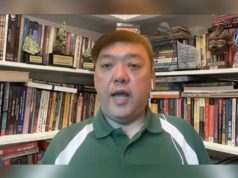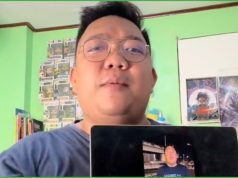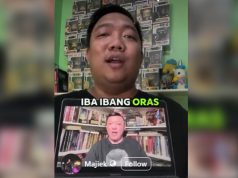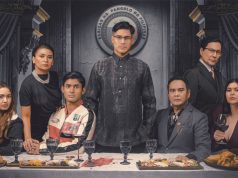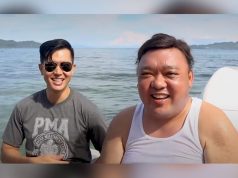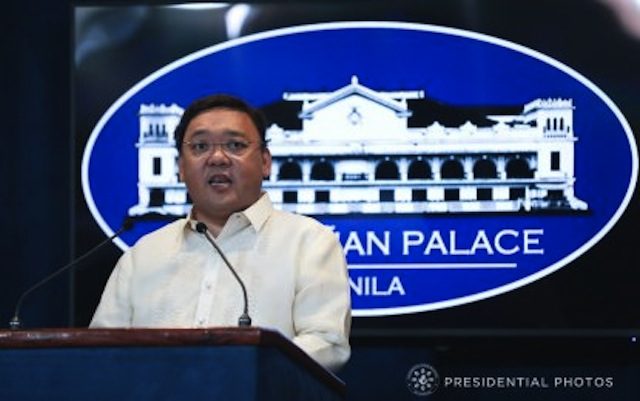
MANILA – Philippine law enforcement agencies have no proof yet on allegations made by two government officials that human rights groups may have become the “unwitting tools” of drug lords, police and drug enforcement agency officials said on Tuesday. Malacañang officials, however, stood by the earlier remarks, with Presidential Spokesperson Harry Roque saying it was not hard to consider that the rights advocates were “unwitting tools,” given the capability of large drug syndicates to mount campaigns.
Rights groups have denounced President Rodrigo Duterte’s ferocious war on drugs, in which thousands of people have been killed, either by police or by shadowy, unidentified masked gunmen on motorcycles.
The mercurial leader, who says he must be tough to protect the people from the scourge of drugs, has criticized rights groups by saying they were “trivializing” his campaign and unjustly blaming the authorities for bloodshed.
“We have no (proof) right now,” national police spokesman Chief Superintendent John Bulalacao told reporters when asked about proof of links between drug syndicates and human rights groups.
“We are still validating reports that drug syndicates might be using human right groups to discredit the efforts of the government,” he said.
PALACE STANDS PAT ON REMARK
Malacañang on Tuesday stood by its remark that non-government organizations (NGOs) may have become “unwitting tools” by drug lords to discredit the Duterte administration’s campaign against illegal drugs.
“We stand by the statement we made on the possibility that some non-government organizations, instead of assisting the government fulfill its human rights obligations, have become unwitting tools of drug lords,” Roque said in a press statement.
“Such scenario, we reiterate, should not be discounted given the billion-peso losses of the drug lords,” he added.
The international watchdog organization Human Rights Watch (HRW) earlier took a swipe at Roque and Foreign Affairs Secretary Alan Peter Cayetano for saying that human rights groups have become unwitting tools by drug lords to discredit the government’s drug war.
“Human Rights Watch should therefore not feel alluded to, exaggerate and politicize the issue to get some media mileage and public attention,” Roque said.
On Monday, Roque said since the illegal drug trade is a multibillion peso industry, drug lords “can easily” finance destabilization efforts against the government.
“The illegal drug trade is a multibillion peso industry and billions have been lost with the voluntary surrender of more than a million drug users, arrest of tens of thousands of drug personalities, and seizure of billion-peso clandestine drug laboratories and factories,” Roque said.
“To continue to do and thrive in the drug business, these drugs lords can easily use their drug [money] to fund destabilization efforts against the government,” he added.
Chief Presidential Legal Counsel Salvador Panelo defended Roque and Cayetano, saying there is no need for them to withdraw their statements.
“It’s not even a disparaging statement,” Panelo said.
Panelo said he would not be surprised if drug lords use innocent organizations in their attempt to prevent the success of President Rodrigo R. Duterte’s intensified campaign against illegal drugs.
He said drug lords can always fund the NGOs “without them knowing they are the ones funding it.”
RECENT FINDINGS
Philippine Drug Enforcement Agency spokesman Derrick Carreon said the reports that drug lords were using rights groups to attack the government’s anti-drug efforts were based on recent findings that would have to be investigated.
“We still have to dig further on this,” he told a regular news briefing at the presidential palace. Carreon said more than 123,000 drug suspects had been arrested since July 2016, which he said showed anti-drugs operations were not about killings.
He said law enforcement agencies welcomed any criticism from rights groups and allowed them to observe anti-drug operations to prove that everything was done according to the rule of law.
“We have made adjustments on the ground in order that we would not be criticized negatively in the conduct of our anti-drugs operations,” Carreon said.
Duterte’s spokesman and foreign secretary did not present any evidence when they told reporters drug lords were using human rights groups to undermine the policy, statements against which the Human Rights Watch protested and said were “shameful” and risked provoking violence.
The anti-narcotics campaign has raised international alarm and drawn criticism from some UN representatives, including High Commissioner for Human Rights Zeid Ra’ad al-Hussein, who suggested recently that Duterte needed to see a psychiatrist.
Police say they have killed nearly 4,200 drug suspects who were violently resisting arrest since the launch of the crackdown 20 months ago, which Duterte has vowed to pursue until he steps down in June 2022.




